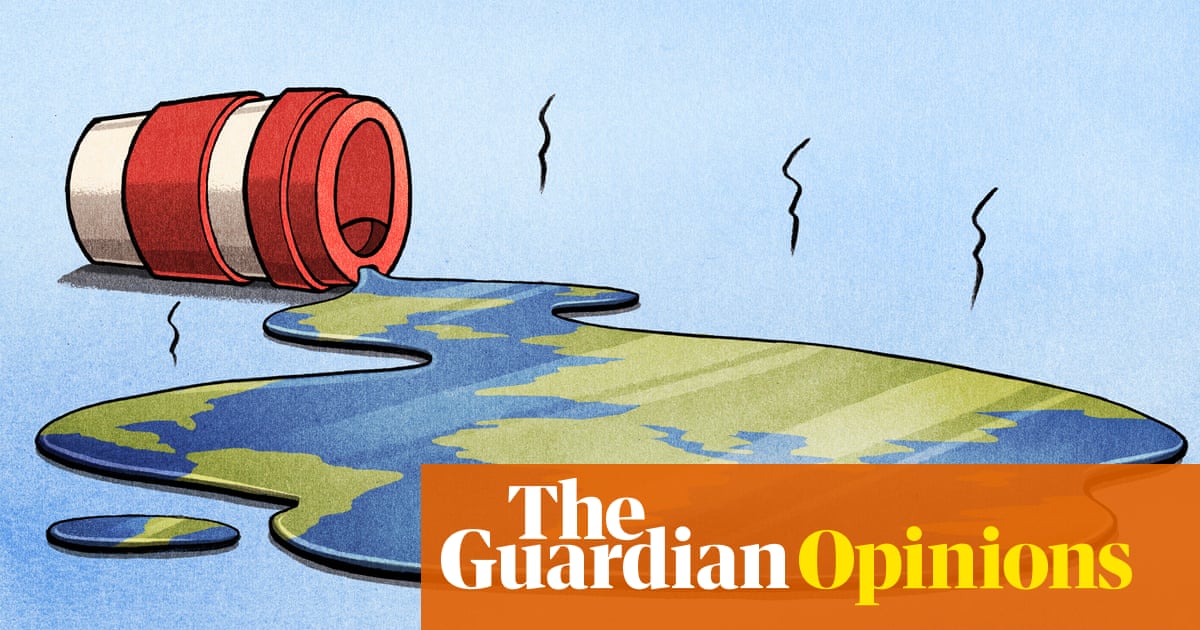
9 Best Articles on Circular Economy
The most useful articles on circular economy from around the web, curated by thought leaders and our community.
Refind focuses on timeless pieces and updates the list whenever new, must-read articles or videos are discovered.
Top 5 Circular Economy Articles
At a glance: these are the articles that have been most read, shared, and saved on circular economy by Refind users in 2024 so far.
Videos
Watch a video to get a quick overview.
A healthy economy should be designed to thrive, not grow
What would a sustainable, universally beneficial economy look like? "Like a doughnut," says Oxford economist Kate Raworth. In a stellar, eye-opening talk, she explains how we can move countries out of the hole -- where people are falling short on life's essentials -- and create regenerative, distributive economies that work within the planet's ecological limits.
Short Articles
Short on time? Check out these useful short articles on circular economy—all under 10 minutes.
Waste Not, Want Not
Sewage is a vital part of a circular economy—and we have the tech to make good use of it. Why don’t we?
Circular Economy in Fashion and in Your Closet
Circular economy in fashion is gaining ground. Here's what that means, why it's good, and how it ties into minimalism and your wardrobe.
Repairing – not recycling – is the first step to tackling smartphone e-waste from smartphones
The ability to repair phones will be key to conserving resources, tackling e-waste and climate mitigation, and building a circular economy for electronics.
"The circular economy is needed to get to net-zero emissions"
Designers and brands must go beyond recycling and focus on making bigger, systems-level changes to help the world move to a circular economy – and ultimately reach its net-zero goals, says Ellen MacArthur.
Circular Economy
Traditional, “take-make-dispose” economies have had devastating impacts on people and the environment. But the circular economy model has the potential to trigger far-reaching change, and put the world on track to achieve the United Nations’ Sustainable Development Goals. While the predominant approach to economic growth has created vast amounts of waste to profit relatively few people, a circular model could treat waste as a design flaw and generate more distributed and inclusive systems. Ultimately, it offers an opportunity to rethink, redesign, and reconceptualize economies to better address human needs and make more efficient use of natural resources - and its relatively nascent state makes it ripe for innovation. This briefing is based on the views of a wide range of experts from the World Economic Forum’s Expert Network and is curated in partnership with Rahmin Bender-Salazar, Lecturer, and Stefano Pascucci, Visiting Researcher, at Wageningen University & Research, and Domenico Dentoni, Full Professor and co-holder of the Communication and Organizing for Sustainability Transformation (COAST) Chair, Montpellier Business School.
Long Articles
These are some of the most-read long-form articles on circular economy.
Amsterdam Is Embracing a New Economic Theory to Help Save the Environment. Could It Replace Capitalism?
It’s the first time a major city has attempted to put doughnut theory into action on a local level
We won’t save the Earth with a better kind of disposable coffee cup
We must challenge the corporations that urge us to live in a throwaway society rather than seeking ‘greener’ ways of maintaining the status quo, says George Monbiot
What is Refind?
Every day Refind picks the most relevant links from around the web for you. Picking only a handful of links means focusing on what’s relevant and useful.
How does Refind curate?
It’s a mix of human and algorithmic curation, following a number of steps:
- We monitor 10k+ sources and 1k+ thought leaders on hundreds of topics—publications, blogs, news sites, newsletters, Substack, Medium, Twitter, etc.
- In addition, our users save links from around the web using our Save buttons and our extensions.
- Our algorithm processes 100k+ new links every day and uses external signals to find the most relevant ones, focusing on timeless pieces.
- Our community of active users gets the most relevant links every day, tailored to their interests. They provide feedback via implicit and explicit signals: open, read, listen, share, mark as read, read later, «More/less like this», etc.
- Our algorithm uses these internal signals to refine the selection.
- In addition, we have expert curators who manually curate niche topics.
The result: lists of the best and most useful articles on hundreds of topics.
How does Refind detect «timeless» pieces?
We focus on pieces with long shelf-lives—not news. We determine «timelessness» via a number of metrics, for example, the consumption pattern of links over time.
How many sources does Refind monitor?
We monitor 10k+ content sources on hundreds of topics—publications, blogs, news sites, newsletters, Substack, Medium, Twitter, etc.
Can I submit a link?
Indirectly, by using Refind and saving links from outside (e.g., via our extensions).
How can I report a problem?
When you’re logged-in, you can flag any link via the «More» (...) menu. You can also report problems via email to hello@refind.com
Who uses Refind?
450k+ smart people start their day with Refind. To learn something new. To get inspired. To move forward. Our apps have a 4.9/5 rating.
Is Refind free?
Yes, it’s free!
How can I sign up?
Head over to our homepage and sign up by email or with your Twitter or Google account.
Keep Learning
Get the big picture on your favorite topics.







